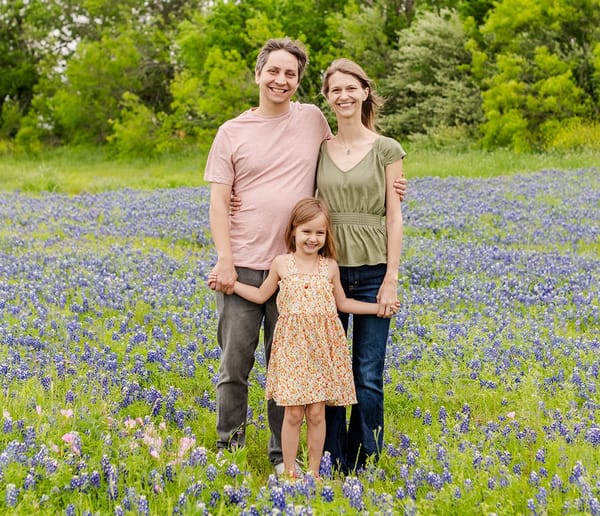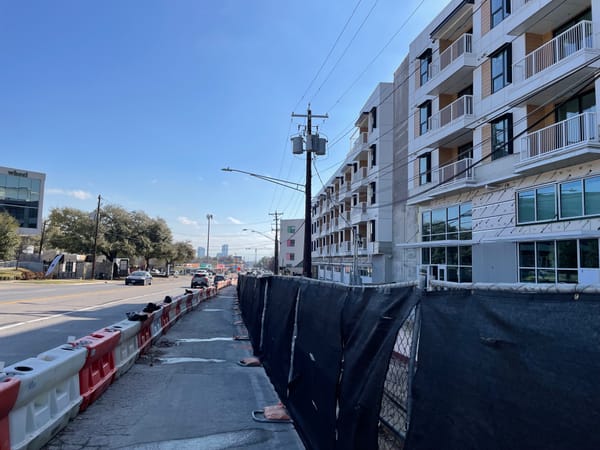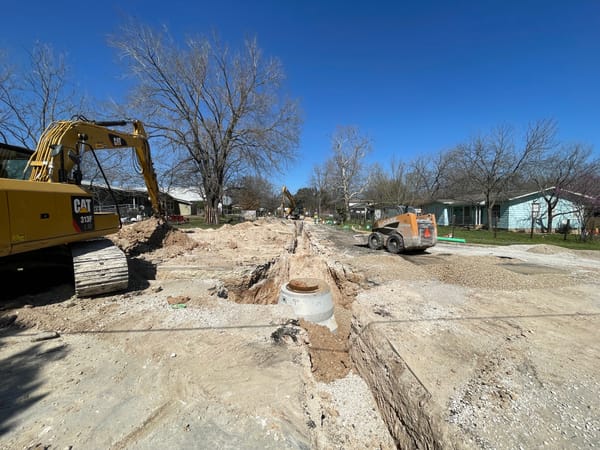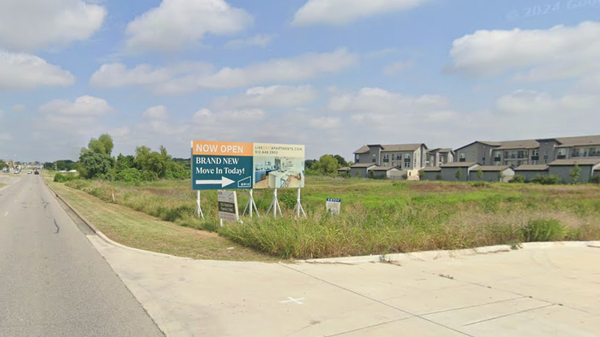A better way for the police union to spend its money
Why did the cops blow so much money on a lost cause?

I'm gonna take a brief break from vacation to quickly comment on the results of this weekend's election.
As you may have seen, Prop A, a charter amendment aimed at empowering the Office of Police Oversight to exercise meaningful oversight of the Police Department, passed with just under 80% of the vote. The result was inverted for Prop B, the fake oversight measure put on the ballot by the Austin Police Association: about 80% voted against.
What happens now?
There's debate about how much of the charter amendment can be implemented. What even supporters concede is that some of the oversight provisions can only be implemented if agreed to as part of a labor contract with the police association. But the charter now says the city cannot approve a union contract that doesn't include these oversight provisions.
Equity Action, the group that backed Prop A, offered this summary:
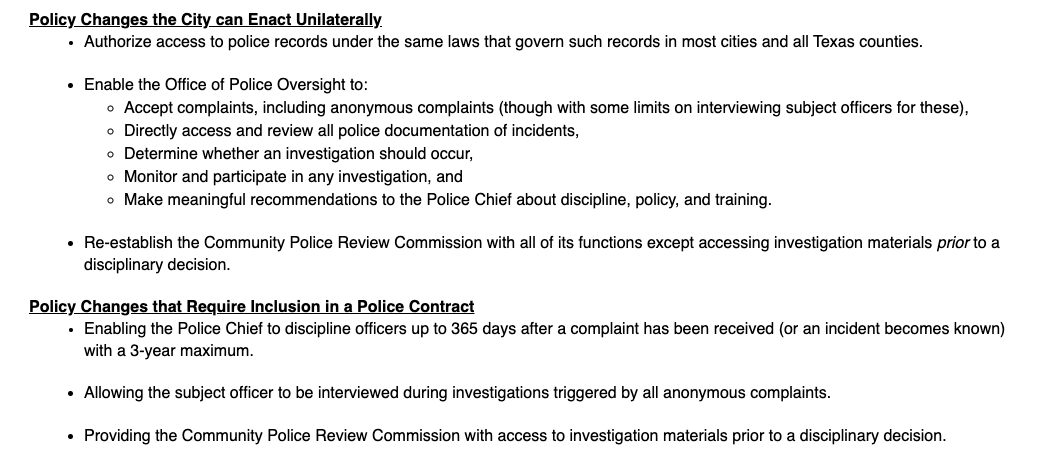
So either the APA agrees to a contract with increased oversight or it continues to work without a contract. Is increased oversight so offensive to the police that they'll opt to continue without a contract, hoping that City Council will continue to simply approve pay raises for them? Time will tell.
There's also a chance the legislature will approve a bill in the coming days that will nullify much of the proposition. The bill was surprisingly voted down, 2-6, in the House Urban Affairs Committee yesterday, but CLEAT, the statewide police federation, is lobbying hard for the committee to take it up again.
Mayor Kirk Watson's response was hard to interpret. His Watson Wire newsletter was not particularly celebratory:
With the election behind us, my hope is that we can get to back to work negotiating a new four-year contract with the police association with the aim of bringing some stability to the seriously understaffed and overworked Austin Police Department.
That said, this already complex situation is further complicated by two factors: pending legislation that would impact provisions just approved by voters; and a provision in Prop. A that, ironically, could lead to the people of Austin having less oversight over their police department than we had under both the expired contract and the proposed four-year contract, assuming the union doesn’t agree to certain Prop. A provisions.
Why would it lead to less oversight? According to a Watson aide, the mayor is referring to the possibility that the city and union won't be able to negotiate a contract. But it's worth noting that the current civilian "oversight" is not meaningful oversight. The Office of Police Oversight simply receives complaints from citizens; it cannot meaningfully investigate them.
"The mayor has repeatedly said that the city needed to respect the will of the voters," Kathy Mitchell of Equity Action tells me. "The voters have spoken, most of Prop A can be enacted right now, and the city should do that. And especially the city should ensure that the Office of Police Oversight has access to information about incidents involving officers so it can do its job again."
Very low turnout
Elections held during weird times (May or odd years) are always low turnout affairs, but this one was exceptionally low: only 67,000 voted. That's much lower than other propositions held during weird times in recent years. In November '21, more than 150,000 cast ballots on the police staffing proposition. Roughly the same number voted six months earlier on the proposition to re-instate the homeless camping ban. About 88,000 voted on a proposition aimed at blocking a Convention Center expansion in November 2019. And, in what feels like a lifetime ago, about 88,000 cast ballots in the May 2016 Uber/Lyft proposition.
I don't know what that means.
Why so low? The obvious answer is that the election was essentially uncontested. Voters for Oversight and Police Accountability, the front group for the police union, spent $288k at the end of last year to gather signatures for Prop B but then, apparently realizing there was no path to victory, barely mounted a campaign on either Prop B or Prop A.
The only group that ultimately spent significantly on the election was Equity Action, the criminal justice group supporting Prop A. It spent over $300,000; the great majority of its money came from two liberal family foundations: the Charles and Lynn Schusterman Foundation in Oklahoma and the Heising-Simons Foundation in Los Angeles.
But the lack of spending reflects the fact that this issue is largely uncontroversial among the general public. I think that's the reality the police union ultimately confronted when it decided not to commit any money to the campaign. There just aren't that many people in this city who are going to turn out against increased transparency and accountability for cops. Taxpayers demanding higher standards from their employees is hardly the first step towards Marxism.
Voters are not anti-police, but they have seen too many instances of bad police behavior going unpunished to believe that subjecting police to greater oversight and accountability is a bad thing. Cops have been able to shield themselves from oversight by working elected officials in smoke-filled rooms, not by winning hearts and minds. This is not an issue they can win electorally, certainly not in Austin.
Here's an idea for how the police –– and the city –– can win
Pity the police union. In a scheme that could have been ripped off Reno 911, the APA paid $277,000 to a sleazy front group to gather signatures for another "police oversight" proposition that wouldn't change anything about police oversight. When campaign finance reports inevitably tipped the public off to the scheme, the cops decided they didn't want to play anymore.
Now they're saying the proposition is illegal:
The Austin Police Association is aware of the election results and is taking immediate action to determine the city's intentions regarding the implementation and enforcement of the illegal provisions contained in Prop A. The APA simply will not stand by while this city and 1/4
— Austin Police Association (@ATXPOA) May 7, 2023
If they're so confident the new oversight provisions are illegal, why did they drop nearly three hundo on the fake proposition? I can't think of an answer that would reflect well on the union's leadership.
Whatever happens, the police union could have certainly found better ways to spend its money. It could have thrown a massive party, for instance. Or, more meaningfully, it could have spent that $277k on a campaign, alongside the EMS and fire unions, for a tax rate election that would generate new revenue to bolster public safety spending.
Due to revenue limits imposed by the state, the city is going to run into a deficit in the next few years. The city will either need to make deep cuts or it will need to go to the voters to approve a tax rate above the typical 3.5% limit. It is likely that tax rate elections are going to become a somewhat regular feature of local government, much like infrastructure bonds.
This offers the cops an opportunity to wage a campaign where the Austin majority will be on their side. People want police, especially if it is presented alongside increased investments in other public safety services: fire, EMS, mental health etc.
But maybe hiring more cops is a lower priority than thwarting oversight for the APA. If that is the case, they should keep doing what they're doing.


